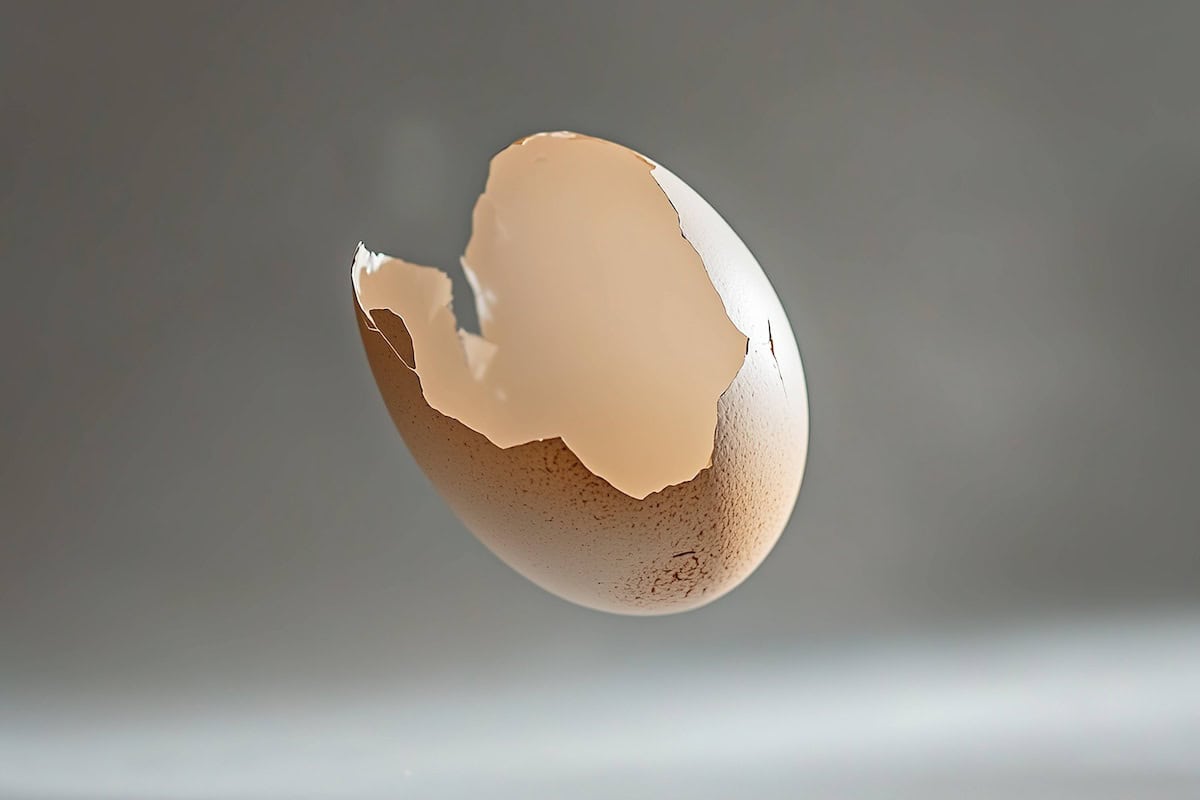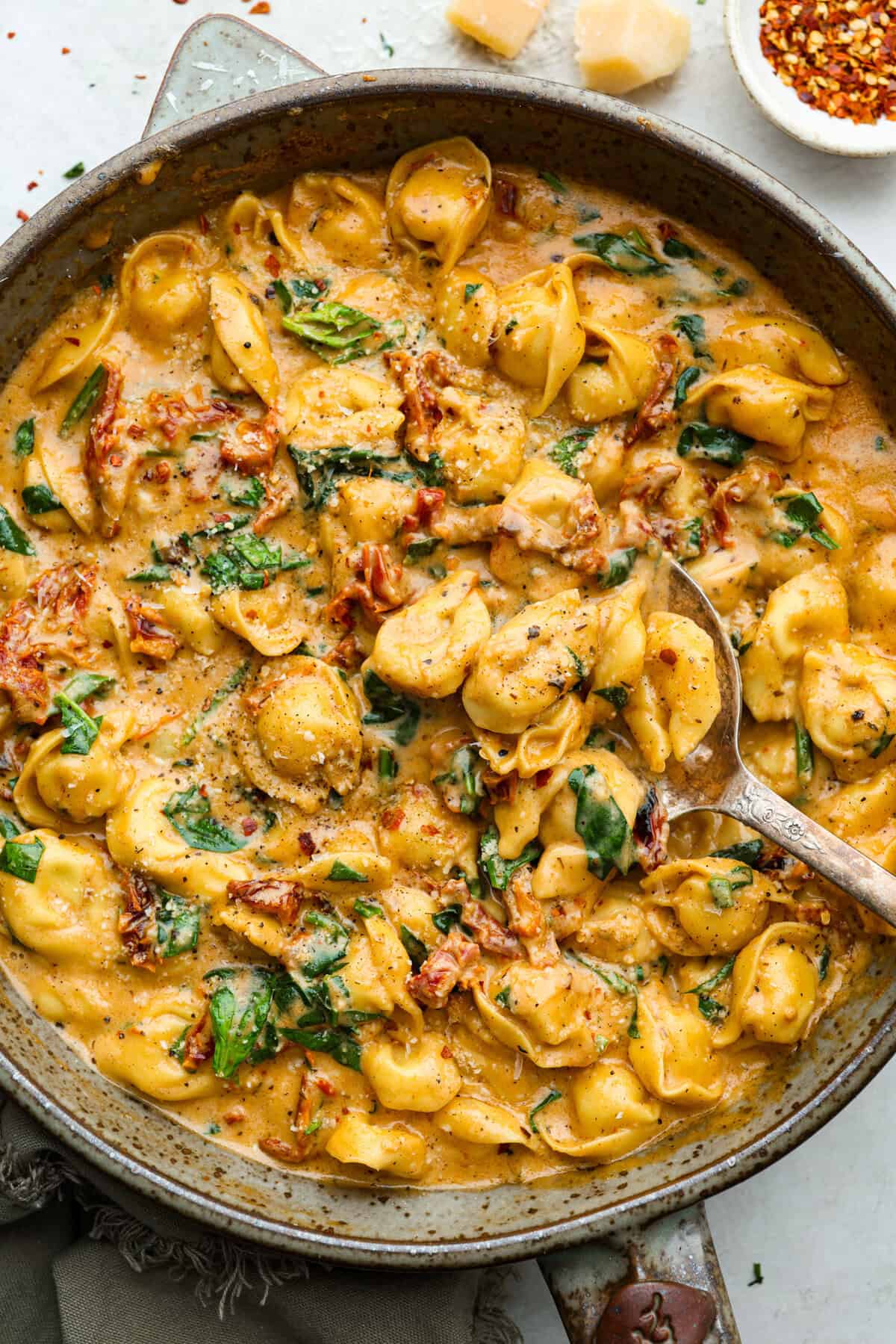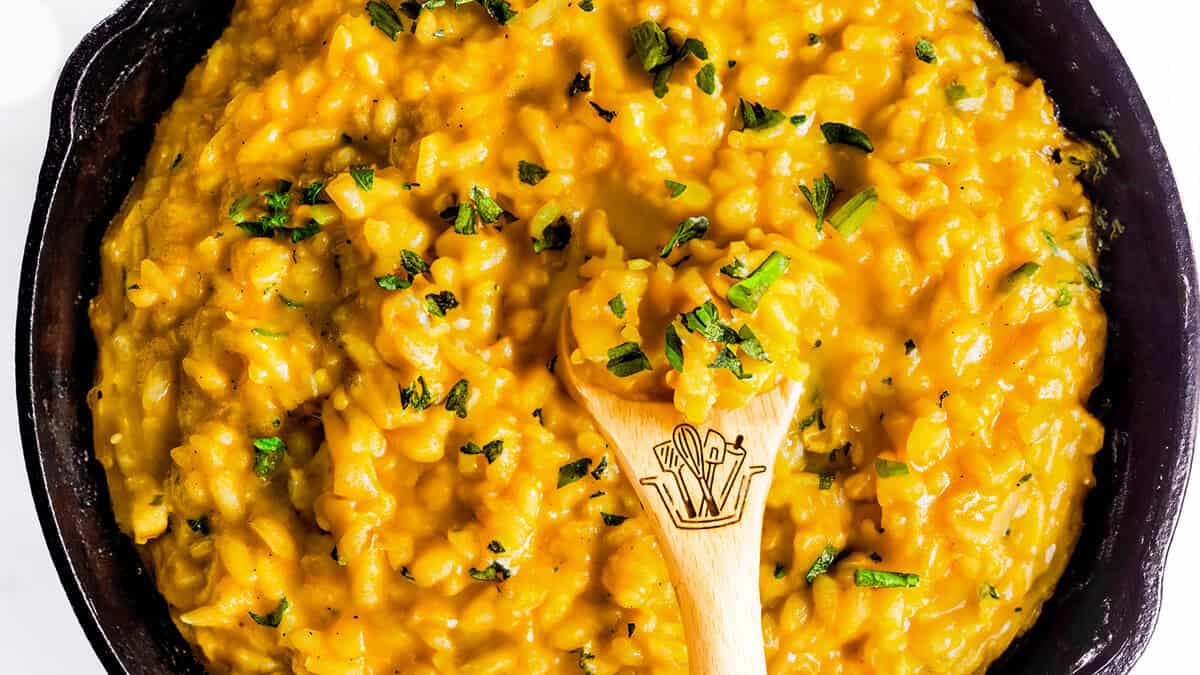
Note: This week’s musings relate to my struggle with disordered eating and body dysmorphic disorder. If you find this topic unsettling or otherwise uninteresting, you may want to scroll down and skip to This Week’s Recipe Inspo, 3-Ingredient Bagels! 😉
Last week, on my Instagram stories, I talked about the eggshell skull doctrine in law. In short, the theory can be summarized as follows: if you break the law or commit some sort of tort against a person (like assault), you are liable for any and all harm to said person that arises from such conduct, even if the person has some rare, undisclosed infirmity that renders them unusually vulnerable to harm. I’ll give you a real world example:
In Vosburg v. Putney, 80 Wis. 523, 50 N.W. 403 (Wisc. 1891), two kids were horsing around in class (keep in mind that this case is from the late 19th century). One 14-year old boy kicked the other 11-year old boy in the upper shin (by accident). What the “kicker” didn’t know, though, was that the younger boy had previously injured the knee of that same leg. As a result of their horsing around, the 11-year old boy’s leg grew seriously infected, requiring significant medical intervention. For the rest of his life, he experienced weakness in that leg. The court ultimately held that the 14-year old boy was liable for any and all damages arising out of his conduct, even those that were completely unforeseeable.
Another hypothetical that might hit closer to home: imagine you rear end the car in front of you while texting (tsk, tsk!). Not great, but it was really more of a little “tap”–you can hardly even see the dent you made in the other car’s bumper. But it turns out, unbeknownst to you, that one of the passengers in the car has a very rare condition called “eggshell skull” and the abrupt jolt of the vehicle caused significant brain damage. Under the eggshell skull doctrine, you would be on the hook for any and all damages (e.g., medical expenses, a lifetime of rehab, mental health support, etc.) arising from your small infraction.
Believe it or not, this doctrine, the “eggshell skull doctrine,” is still good law in most parts of the United States (and we wonder why insurance is so ridiculously expensive…). Many people on my Instagram weighed in on this doctrine, including my husband (who, confidently told yours truly, a 20-year litigator, “no court in their right mind would let this happen”). As you might have guessed, the majority of those who messaged me agreed with Anthony–it was not fair to saddle the rear-ender with the responsibility of someone else’s extraordinary medical condition. Didn’t it make more sense to require the passenger to wear a helmet?
Why did I bring this up in my IG stories (and in this week’s newsletter)?
Several years ago, I listened to a podcast episode featuring a very long, detailed discussion on the benefits of intermittent fasting. Over the course of 2+ hours, the featured guest, a scientist who devoted much of his life to understanding the science of the body’s ability to heal, talked about numerous studies proving the positive impact fasting could have on cancer treatment, cancer prevention, surgery recovery, injury recovery, weight loss, metabolic disorders, and even mental health. Absent from this discussion (between two men) was any mention of eating disorders.
I left that episode feeling confused and a little unsettled. On the one hand, I obviously wanted all the touted benefits of fasting. As a long distance runner, my body was always suffering from some ailment, small or large, and maybe sprinkling in a few days of fasting three to four times a year could help regenerate some healthy cells. On the other hand, I knew that intermittent fasting could, for me, easily slide into restrictive eating, which would inevitably lead me down the well-worn path of disordered eating.
I found myself obsessing about the podcast episode. The phrase “intermittent fasting” became a sort of lingering indictment, a constant reminder of my failure to curb my addictions–to food or to restrictive eating. It made me feel ashamed, lazy, and detestable–all the feelings I’d had about myself when I was obese. I recognized it was only a matter of time before this compulsive thinking turned into compulsive dieting and, in the end, I had to spend several sessions in therapy to conclude, “Intermittent fasting is not for me.” Or, as Rachel, my then therapist put it, “You have disqualified yourself from ever trying intermittent fasting.”
I found it troubling that neither of the men who participated in this discussion disclaimed any portion of it with a simple warning: “Obviously, anyone who is suffering from an eating disorder or has a history with disordered eating should consult their doctor before fasting.” I mentioned the thought to Anthony and his immediate response was, “Why? The vast majority of their listeners will not have eating disorders. Why should they have to cater their discussion to such a unique and small subset of people?”
At the time, I chalked it up to Anthony’s inability to empathize. Of course he couldn’t understand why the discussion had triggered me–he’d admitted he’d never in his entire life ever felt a shred of insecurity regarding his body’s size. He’d also boasted, numerous times, that if he really wanted to, he was confident he could lose or put on weight, at will (though, he admitted, it wouldn’t necessarily be easy). It didn’t occur to me, then, that perhaps I hadn’t always been very forthright about my own experience with eating disorders–mostly because I was afraid it would make me look weak to him. I just assumed that the plight of dysfunctional eating was so prevalent, everyone just sort of knew what it was like.
A couple years later, after coming home from vacation, he announced, abruptly, that he was going to go on a 5-day water fast. Once more, an uneasiness swept through me, but I said nothing. I was not the president of Anthony’s diet and now, for better or worse, I was quite well-versed on the benefits of fasting. I could appreciate that as an athlete, it was completely natural that Anthony might want to see what impact it might have on his recovery time, speed, and overall fitness. But by day 3, things came to a head.
We were sitting at the dinner table. I’d made myself a bowl of rice, tofu, and veggies. Pretty standard. Nothing over the top. His meal? A glass of water. He nursed it judiciously, as if to savor each sip. And the more and more he did this, the more and more I felt like I was stuffing food into my mouth at the rate of a freaking hydraulic shovel truck. I felt disgusting. How dare I eat when my husband was drinking water? My brain sprinted down the same track it knew so well: you’re gross, you’re disgusting, you’re ugly, why can’t you stop shoving food into your face, you’ll never be desirable, you’ll never be worthy, you’ll never be loved, how could you think that this man would love someone like you.
Obviously, I have problems.
The above is not a “normal” way of thinking. But it is very, very real. Imagine how you’d feel after not getting to shower for 10 straight days, going for a 12 mile run in the middle of August, wearing the same underwear you’ve had on for the last week, falling into a mud-pit crammed full of creepy-crawlies, and then sitting down to dinner with someone wearing a crisp, dry-cleaned button down and slacks, the outfit he selected right after he’d showered.
That is a fraction of how disgusting I felt at dinner that night.
Needless to say, Anthony and I had a long discussion that evening. To him, my distress came out of nowhere. He’d had no idea how it made me feel to see him sipping water while I ate my otherwise reasonable dinner. And why should he? Although I’d communicated to him I had “eating issues,” I’d never articulated precisely why I had those issues or how they’d sometimes manifest. The truth was (and is), even I can’t always predict what might spark the feelings I described above. Had I known it would have bothered me as much as it did, I probably would have said something at the time he’d made his declaration. He was super defensive, but in the end, he agreed that he would never embark upon such a dietary experiment again without at least talking to me about it first.
By now, Anthony is quite familiar with so much of this story. And because he loves me, I think the wounds of my childhood hurt him, perhaps even anger him. But that is what love permits–we become the main characters in both our lives. We make room for the cohabitation of two egos, two narratives. And love only discovers its mettle when it is tested, when two stories do not add up, when the gaps in life experiences require patience, trust, and compassion.
But that doesn’t stop me from seeing Anthony’s effort as effort, his effort. Love isn’t a license to take each other for granted, after all. And it also taught me a lot about what I can demand from those who have no ties to me whatsoever. It’s one thing to expect a modulation from those who love you. It is an entirely different thing to expect the same from a random podcast host who doesn’t know your name, much less the ins and outs of your childhood trauma–i.e., my eggshell skull. While it may be permissible to “main character” myself at home with my husband, it is folly to think I can do the same in every interaction I have.
I say this, but I get irritated and uncomfortable when conversations veer towards fasting or other forms of “acceptable” restrictive eating. Unlike a podcast, where I can simply hit “skip,” I never know how to exit the conversation without making everyone else feel equally uncomfortable. Somehow, blurting out, “Well I have a history with eating disorders so this whole talk about fasting just sounds like one big conspiracy to get me to hate my body” doesn’t seem wise or even fair. Oftentimes, I try to change the subject but that doesn’t always work. The last time this happened, I simply got up from the table and went to the bathroom, hoping the topic would change by the time I returned (it had).
Now, I’m very lucky. I have a partner who, despite what I said earlier, sometimes carries astonishing reservoirs of empathy (I almost wrote this week’s newsletter about the first time I moved him to tears–but that’ll be another newsletter!). Anthony very rarely says or does anything that triggers my compulsions anymore and when he does, I feel safe enough to talk to him about it, trusting that the two of us will devise a way around these landmines, together.
But what about those people who simply can’t figure it out? I have friends who, despite being told not to talk about dieting and restrictive behavior around me, can’t seem to help themselves. I have family members who are, well, set in their ways. They think they’re being helpful by telling me, “OMG you lost so much weight you look amazing!” when, in actuality, they’re simply reinforcing what might be called a “diet” in polite company, but, factually, is just a fancy form of starvation.
I’ve recently seen so many stories about people going “contactless” with their family. I find this sort of boundary setting almost unfathomable, but, if I’m being honest, one of the most recurring nightmares I continue to have is being told by my family, “you’re so fat.” I have this lovely nightmare about once a month. Surely, there must be a better way?
I know what you’re thinking. Just tell them, “can you stop saying those things?” Seeing as how it hasn’t even worked with some of my friends, I worry what it will mean to me if it doesn’t work with family. I worry that it might backfire and make my nightmares even worse, more frequent. I worry that making them feel guilty or bad about any of this will make me feel guilty and bad for making them feel guilty and bad, leaving me between the proverbial rock and hard place. And the problem is, addictive behavior–which I often feel restrictive eating has become for me–is my brain’s hard-wired response to guilt and shame about anything, not just my body.
Did you like this article? If so, please share it!
This Week’s Recipe Inspo
3-Ingredient Bagels!

Parting Thoughts
I think it’s safe to say that January 2025 was…hellish? Definitely long. I’m glad it’s finally over. I told people that if 2025 didn’t get off to the start they thought it would (you know, because of wildfires, the inauguration of a criminal, a devastating plane crash, the scapegoating of DEI, take your pick), Lunar New Year, which took place on January 29, offered the perfect excuse to hit the “reset button.”
Have you had to pivot much? Do you ever feel weighed down by the plans you’ve set out for the entire year? Two years? Three years? I like to tell myself that “new year’s resolutions” are arbitrary and sort of silly–you can set goals any old time of year. But sometimes I worry that this is just a cop out, a fear of failure that tries to keep me in my comfort zone. I’ve begun to wonder whether my problem is not that I don’t chase my dreams with sufficient determination, but that I don’t dream big enough. That I’m trying to soar with clipped wings off a ledge that isn’t nearly high enough.
My dreams for this year are pretty straightforward: (a) sign a book deal on my memoir, and (b) make Cookbook 2 another bestseller. These are pretty big and, if realized, will have a life-altering impact on my career, business, and our family. But sometimes, I feel it’s hard to stay focused, day-in, day-out. I once heard a great piece of advice from listening to a podcast: every morning, write down a list of all the things you plan to do that day. Then, ask yourself, if at least three of those things further your goals for the year. Today, I posted a recipe to my blog and also a bunch of recipe videos to Facebook. And, this evening, I plan to read a couple pages out of Juhea Kim’s Beasts of a Little Land, in an attempt to make me a better writer and storyteller.
What about you? What are you planning on doing today to further your goals for 2025?
Wishing you all the best,
-Joanne












 English (US) ·
English (US) ·